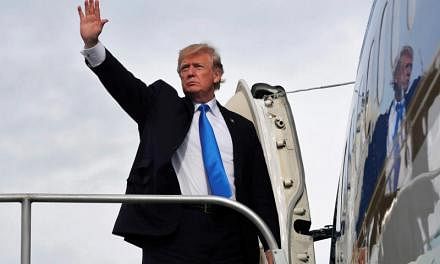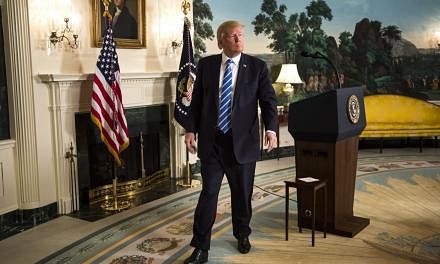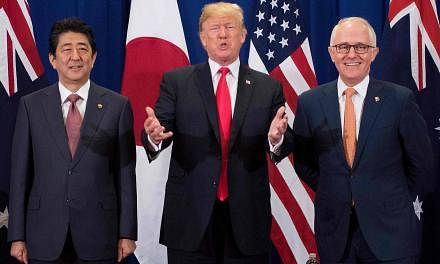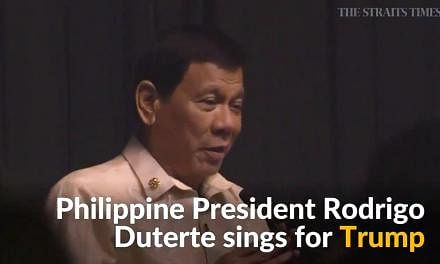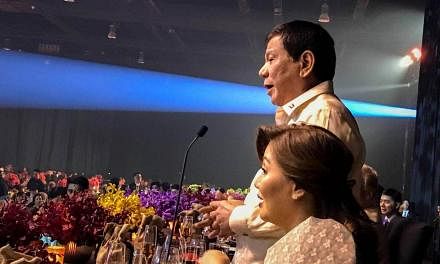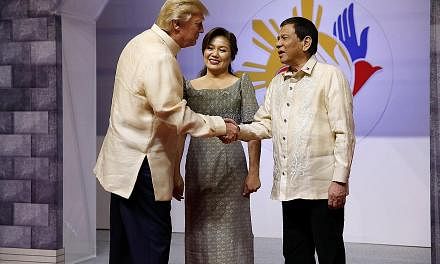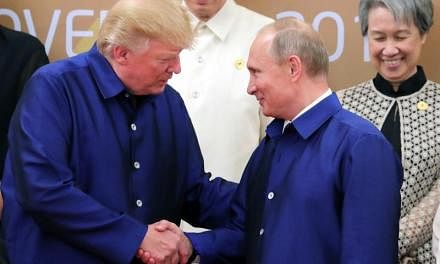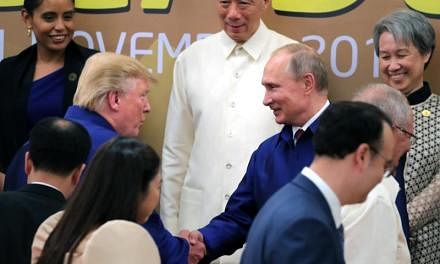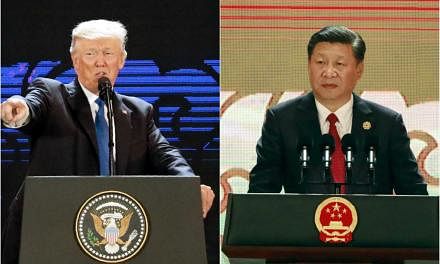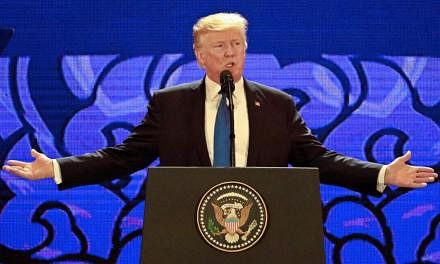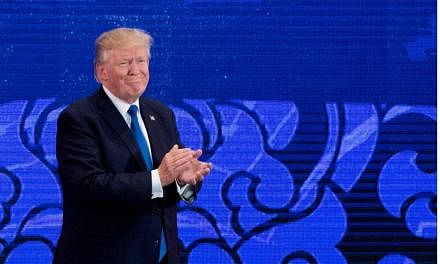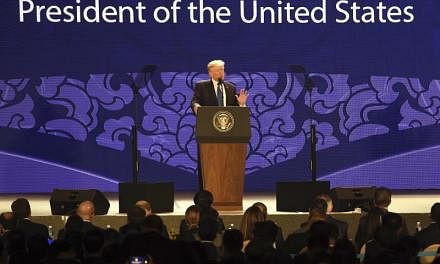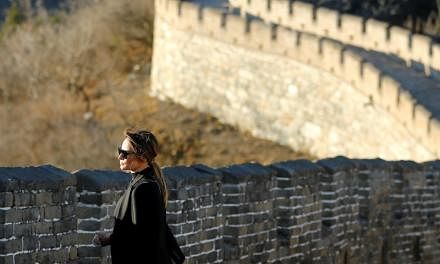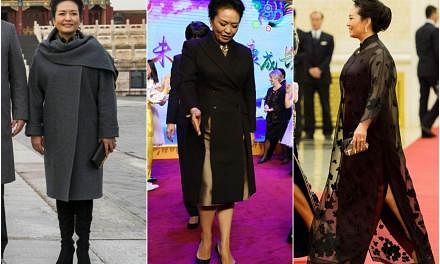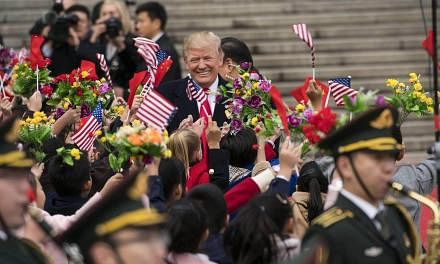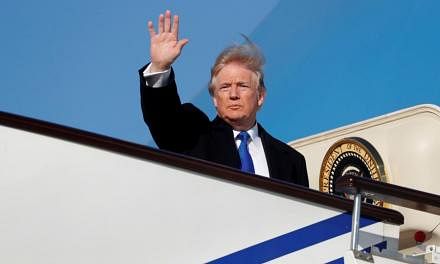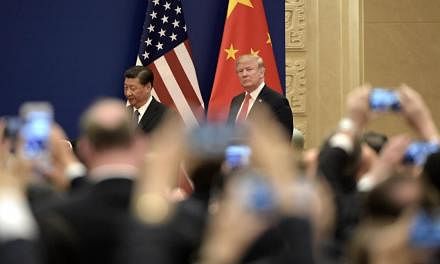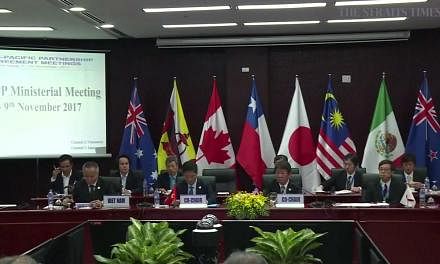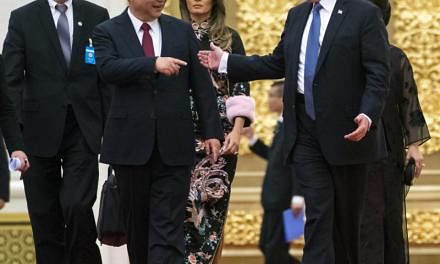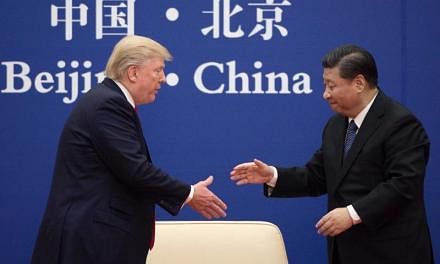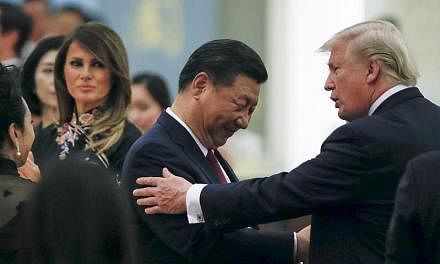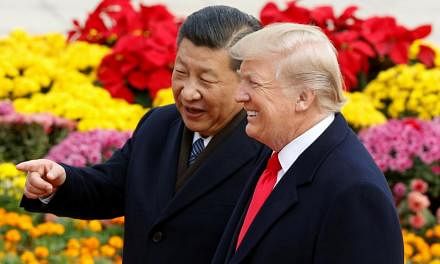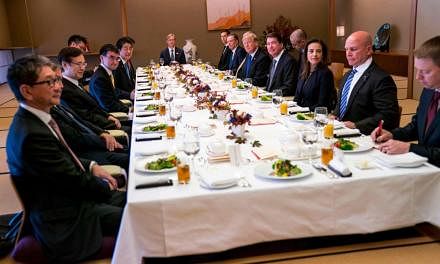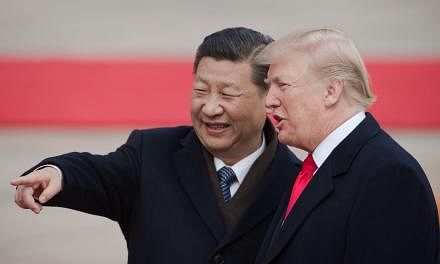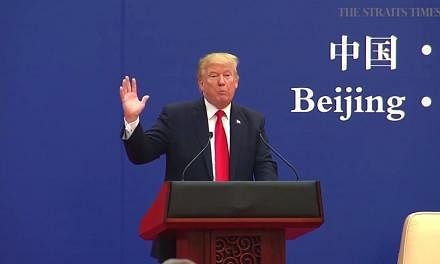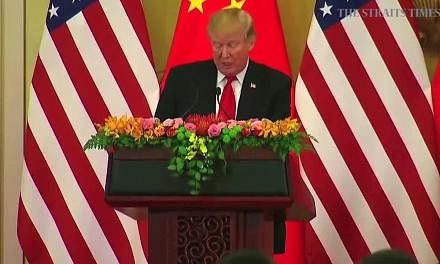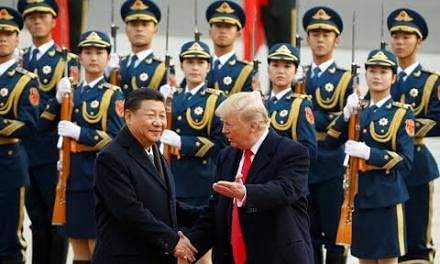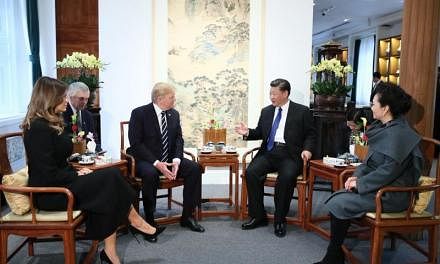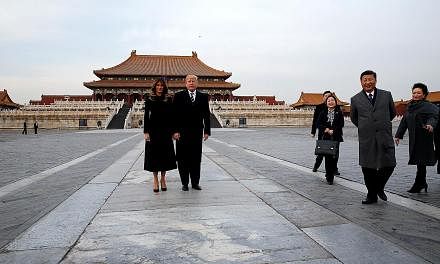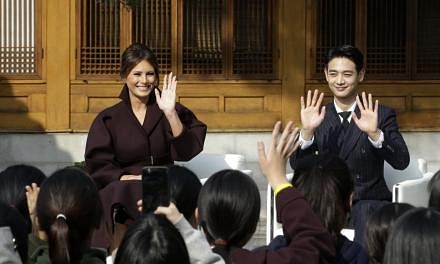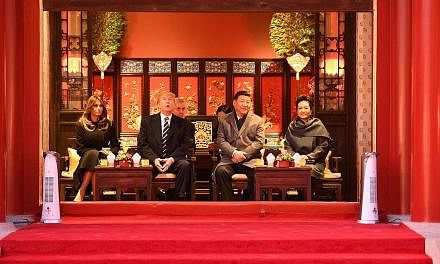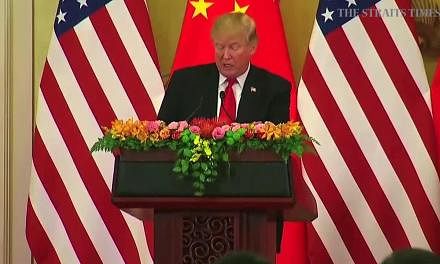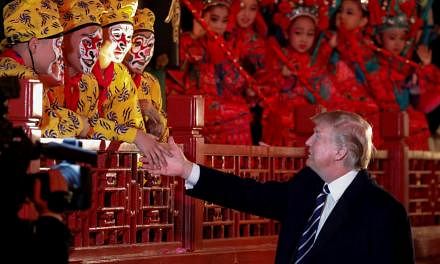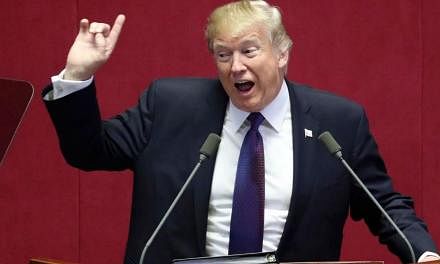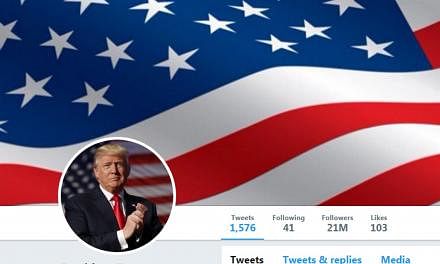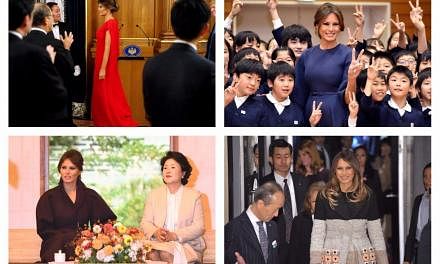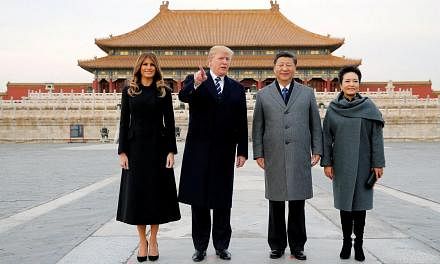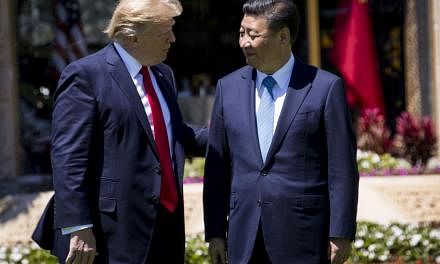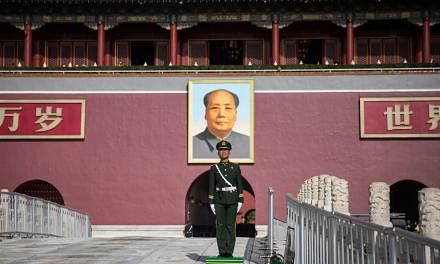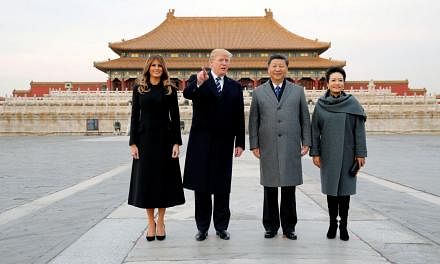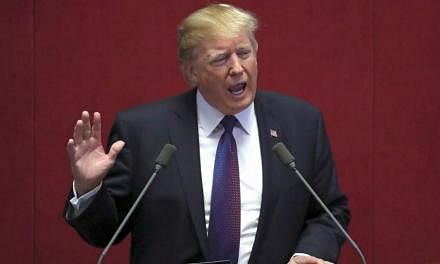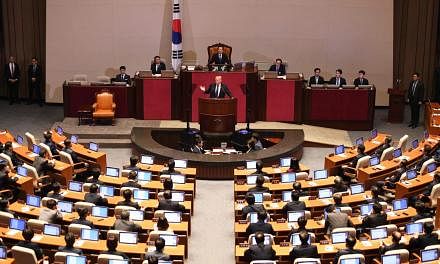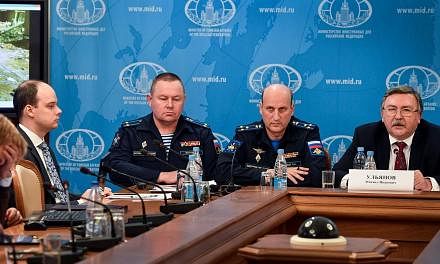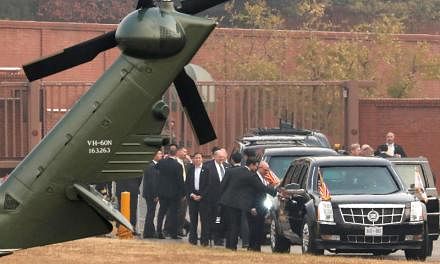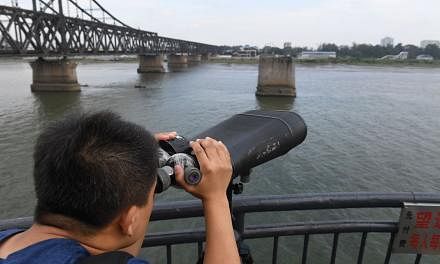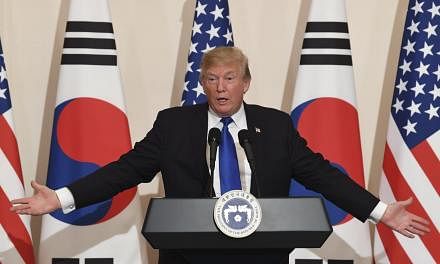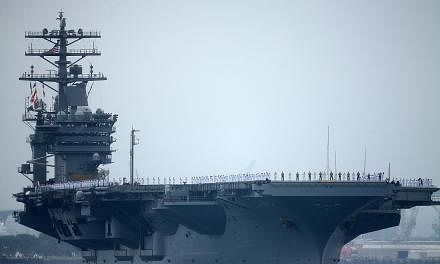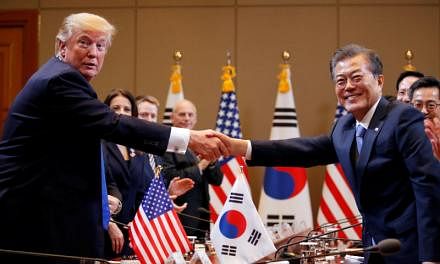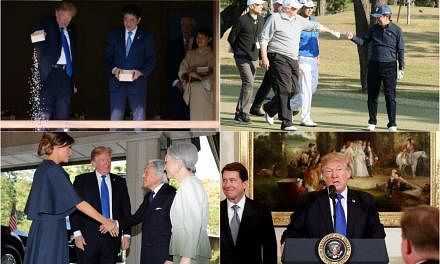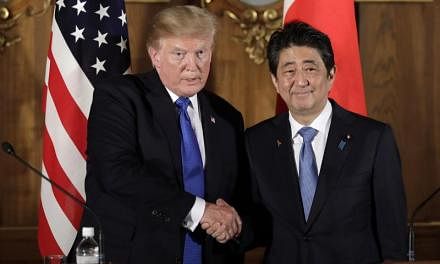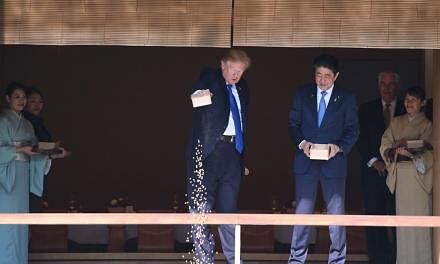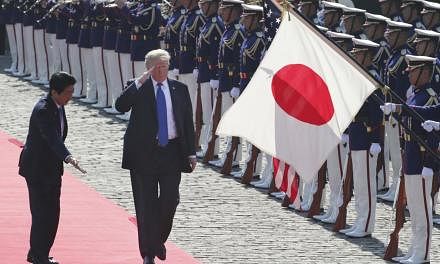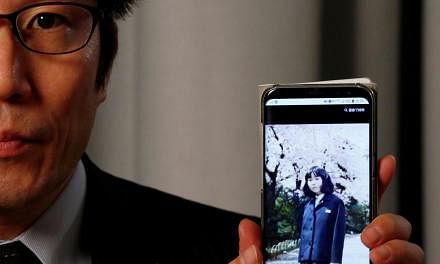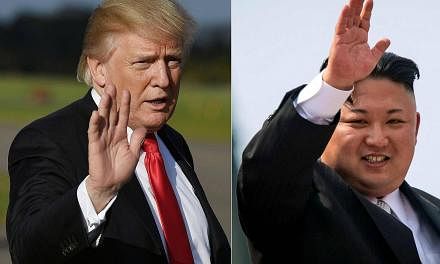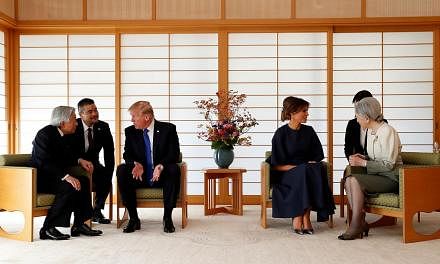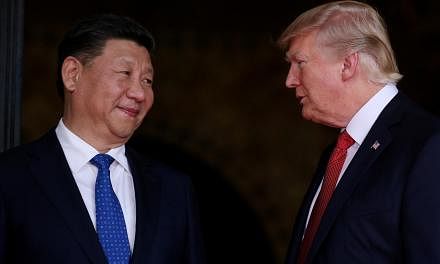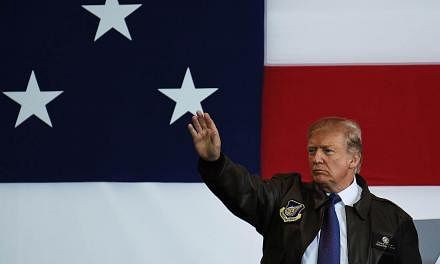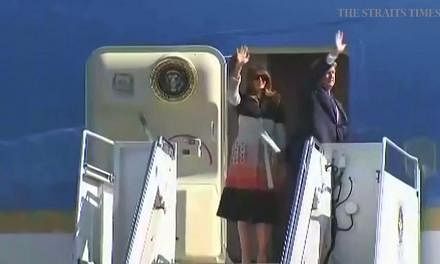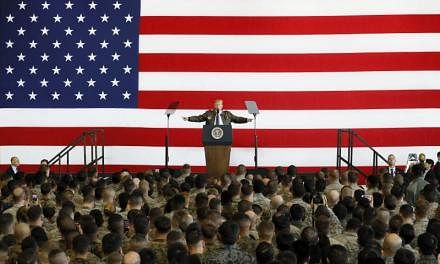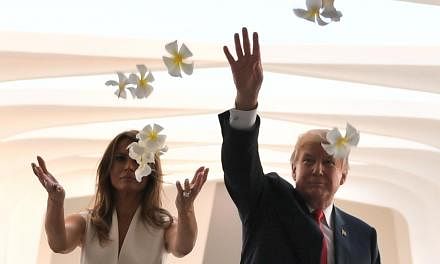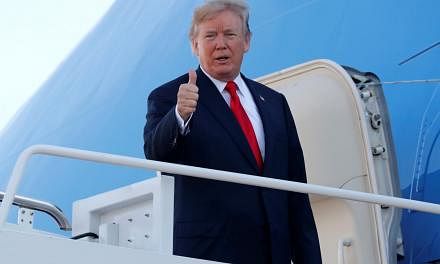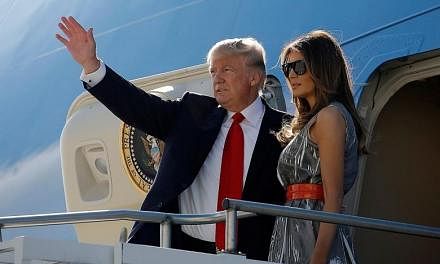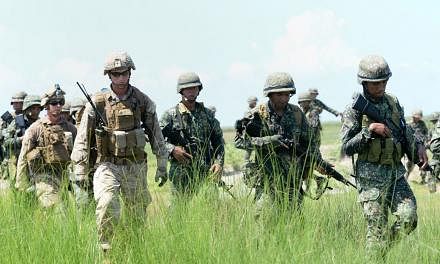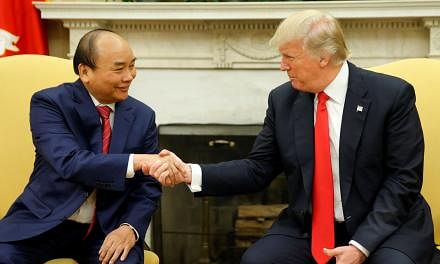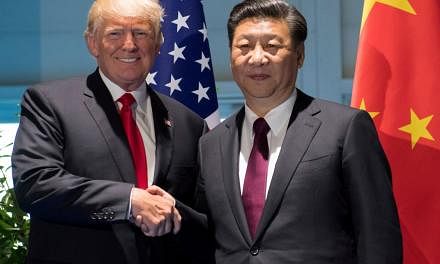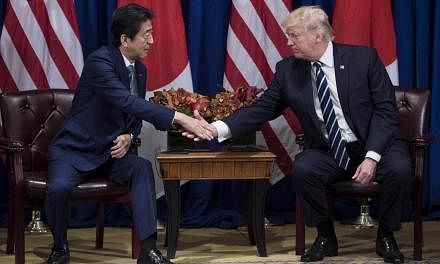SEOUL - United States President Donald Trump has issued a strong but less fiery warning towards North Korea with promises of a "better future", while at the same time calling on the world to join forces in confronting the regime's nuclear threat.
In a speech on Wednesday (Nov 8), described by analysts as restrained but "very presidential", Mr Trump urged "all responsible nations" to isolate North Korea by implementing United Nations sanctions, downgrading diplomatic ties and cutting all trade links with the regime.
Speaking at South Korea's National Assembly as part of an ongoing Asia tour, the American President also sent a direct message to North Korean leader Kim Jong Un, with whom he had earlier traded bellicose insults and threats.
"Every step you take down this dark path increases the peril you face... North Korea is not the paradise your grandfather envisioned. It is a hell that no person deserves."
The US can offer "a path towards a much better future", said Mr Trump. "It begins with an end to the aggression of your regime, a stop to your development of ballistic missiles and complete, verifiable, and total denuclearisation."
North Korea's nuclear crisis has dominated Mr Trump's 12-day Asia tour that has so far taken him to Japan, South Korea and China.
Pyongyang, which has refrained from provocations since its last missile test on Sept 15, has ruled out talks and vowed to continue boosting its nuclear prowess. The state-owned Rodong Sinmun newspaper condemned Mr Trump's visit to South Korea in a commentary yesterday, accusing him of strengthening military threats and trying to "light the fuse for a nuclear war".
Mr Trump did not delve into details of how North Korea can choose the better path. But he made it clear that although the US seeks a peaceful resolution, it will not hesitate to assert its military might if need be.
"The regime has interpreted America's past restraint as weakness. This would be a fatal miscalculation... Do not underestimate us, and do not try us. We will defend our common security, our shared prosperity, and our sacred liberty."
He also stressed that the US has a "nuclear submarine, appropriately positioned" nearby. Three US aircraft carrier strike groups are slated for a joint exercise in a rare show of force in days ahead.
"I want peace through strength," he added.
Analysts said Mr Trump's speech, which ended with a standing ovation, was firm yet measured, as he sought to assuage South Korean fears of a looming war if the US were to pursue unilateral military action.
The US leader devoted a large part of his speech to hailing the post-war achievements of the South while slamming the North's cult-like rule and human rights abuses. He also avoided broaching the tricky issues of trade and defence cost sharing.
Professor Kim Jae Chun from Sogang University noted that Mr Trump "exercised restraint and used more moderate language", but still managed to "impart a strong message to North Korea". There was no repeat of provocative words like "fire and fury" or "rocket man".
Dr James Kim of The Asan Institute for Policy Studies said Mr Trump made "very controlled yet powerful" statements. "He looked very presidential today... He emphasised the important point of 'peace through strength'."
Other analysts, however, felt Mr Trump did not offer any tangible solution to the nuclear stalemate.
Dr Sue Mi Terry, senior fellow at Centre for Strategic and International Studies felt Mr Trump "said all the right things" but there was nothing "really new".
Agreeing, Dr Balbina Hwang, visiting professor at Georgetown University, said: "There was nothing Kim Jong Un has not heard before, and it doesn't change anything."

